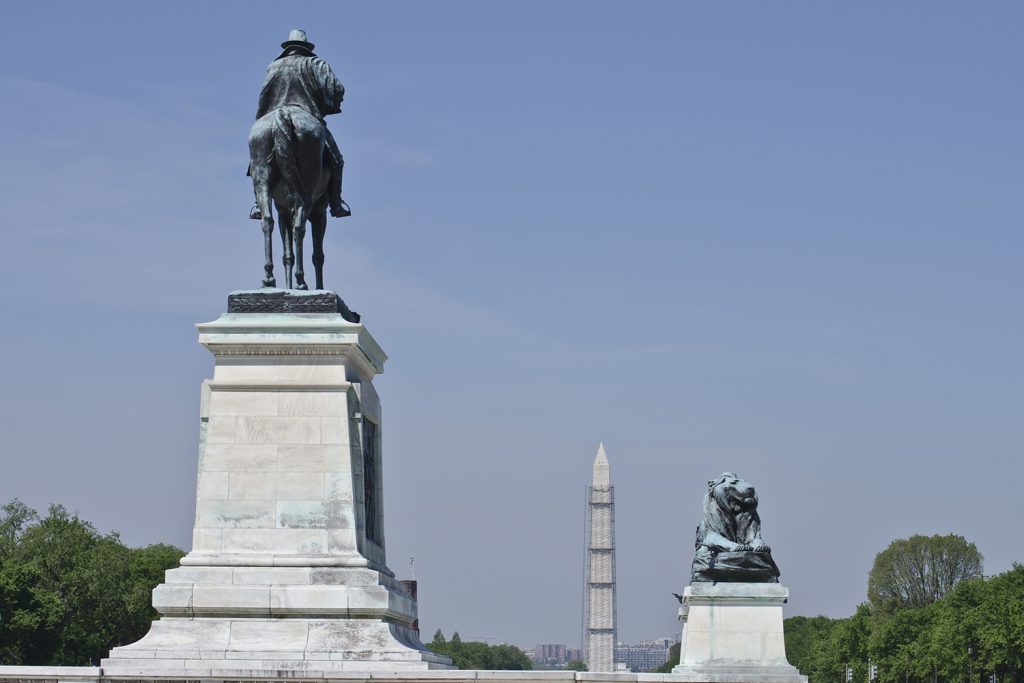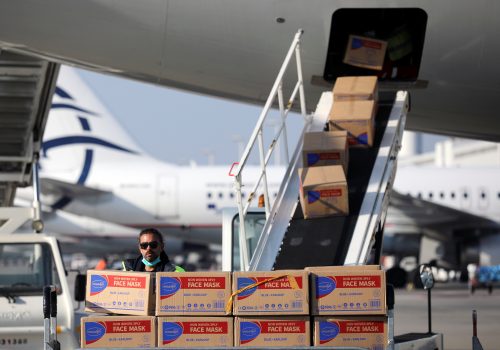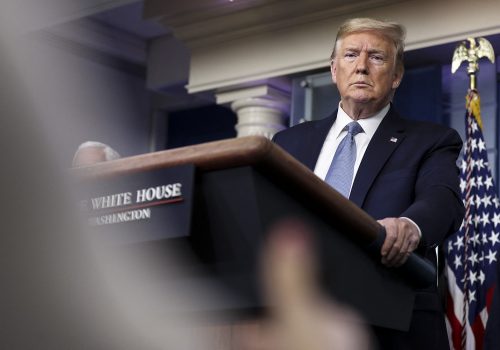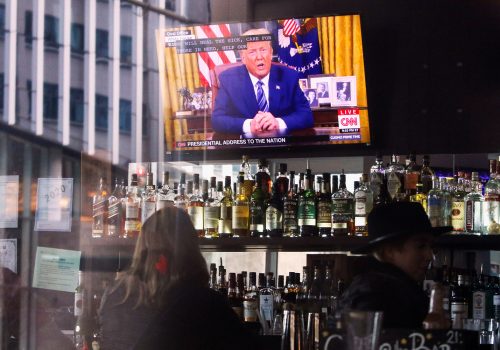For a few days earlier this month, US President Donald J. Trump seemed to take the coronavirus challenge seriously. He called it a war and started referring to himself as a wartime president. But that determination, or the appearance of it, didn’t last. Perhaps daunted by what being a wartime leader in fact requires, Trump reverted to his earlier stance of belittling the challenge: he suggested that victory, so to speak, could be achieved on an arbitrary timeline—by Easter—and that there wouldn’t be many sacrifices required to achieve it.
Since Trump brought it up, let’s consider another example of wartime leadership. The Grant Memorial in Washington, D.C. lies at the foot of the Capitol, at the opposite end of the National Mall from the Lincoln Memorial. Since Washington started shutting down, I’ve had occasion to visit it a lot lately, on solitary bike rides early in the morning through empty streets. Ulysses S. Grant was the greatest commander during the United States’ bloodiest war. He was neither dashing nor flamboyant. He didn’t do heroic poses. He didn’t boast of easy victories. He fought.
The Grant Memorial shows what a bloody, miserable mess the Civil War was. To Grant’s right a squad of Union cavalry charges forward; to his left artillery advances. There are no easy heroics about it at all. The soldiers move through the mud; a cavalry man has been thrown and is about to be trampled. A horse pulling artillery appears to have slipped out of control. The soldiers are straining with the effort. But they are determined. They are advancing, leaning forward, though death is all around. They know what victory requires.
Grant sits on his horse, looking at once weary and determined, like his men. He’s no dashing cavalier, but a commander who, as Abraham Lincoln said of his great general, understood the arithmetic, which means exactly what it implies: Lincoln and Grant understood what costly a sacrifice it would take to defeat the slave republic of the Confederacy. That sacrifice meant that there could be no going back to the Union as it was, with the slaves as they were. The only way to justify such death was to bring the nation’s rebirth of freedom.
Grant’s predecessors mostly excelled at politics and boasting. Grant excelled at war. And he knew its cost. That knowledge shows in Grant’s ’s face at the Memorial.
The coronavirus challenge is not the Civil War. America lost over 600,000 in that war, out of a total population of about 31.5 million. The coronavirus won’t kill 6 million Americans, the equivalent proportion today. I would not have used the metaphor of war to describe the challenge. But President Trump did. Having done so, it is fair to ask whether he is willing to lead the nation through the mud as we the struggle to victory.
The sacrifices required do not require mass death. Loose talk of allowing coronavirus to kill people—young as well as old—to advance a politically-driven schedule for an early announcement of success is morally abhorrent.
Instead, this enemy can be defeated by competent public health measures, face masks, testing kits, medical equipment, and, yes, big, big sacrifices that include economic hits for many millions. But death is forever and economic hits can be mitigated. Grant had to sacrifice many lives; we don’t.
Leadership means, among other things, doing the needful. Grant did what was needed. The needful now is far less costly. The mud we need to go through is lighter than his. Thank God for that.
Daniel Fried is the Weiser Family distinguished fellow at the Atlantic Council. He was the coordinator for sanctions policy during the Obama administration, assistant secretary of State for Europe and Eurasia during the Bush administration, and senior director at the National Security Council for the Clinton and Bush administrations. He also served as ambassador to Poland during the Clinton administration.
Further reading:
Image: The Grant Memorial overlooking the Washington Monument in Washington, DC on April 27, 2013 (Tim Evanson via Flickr)



